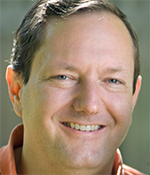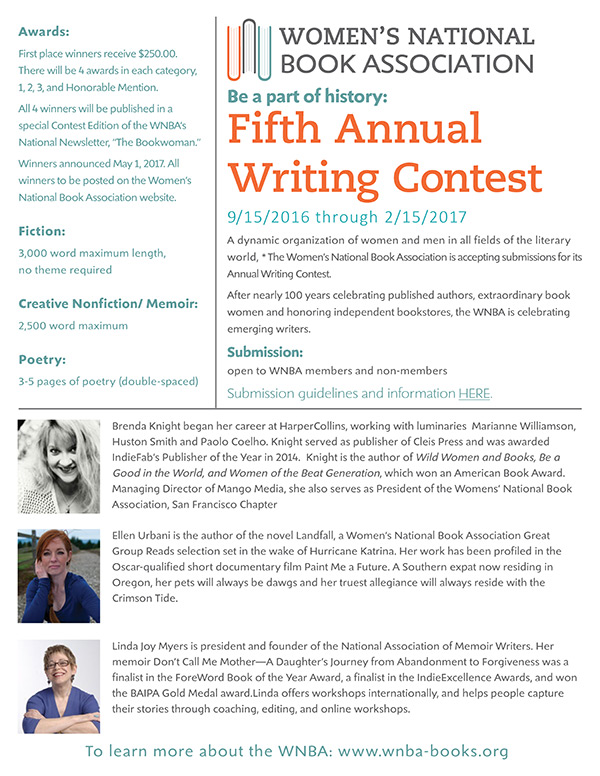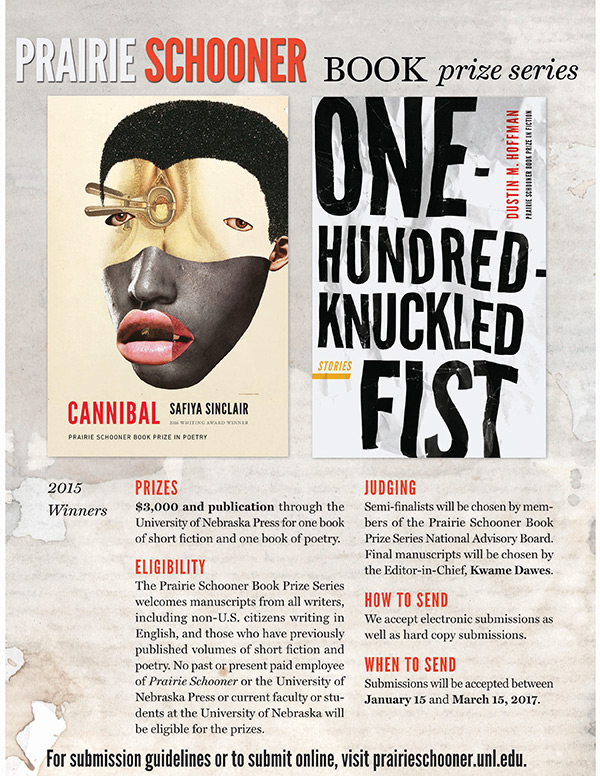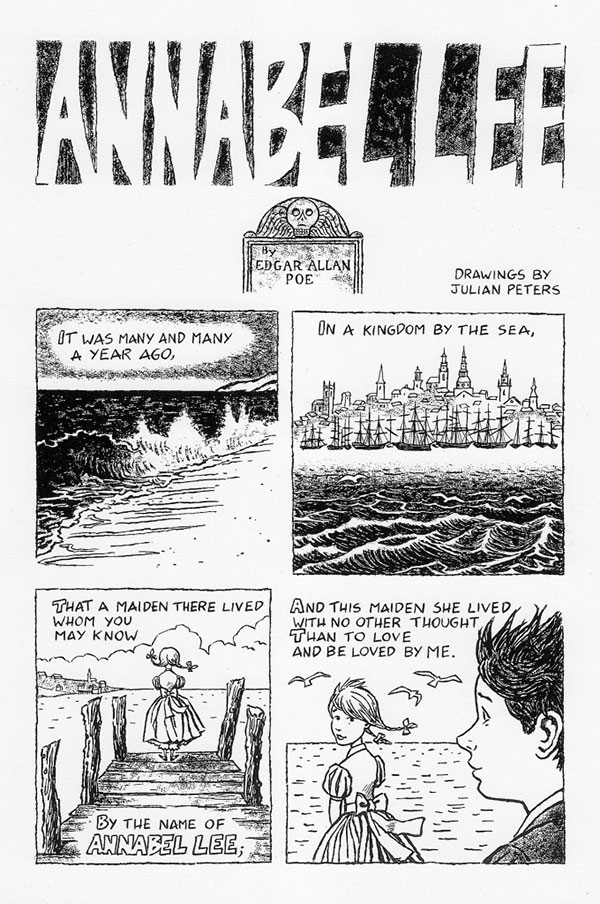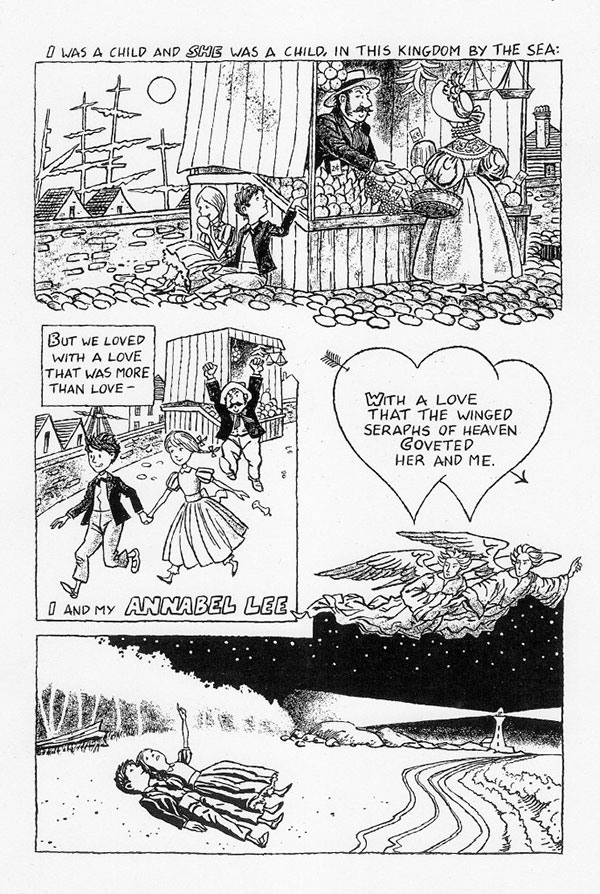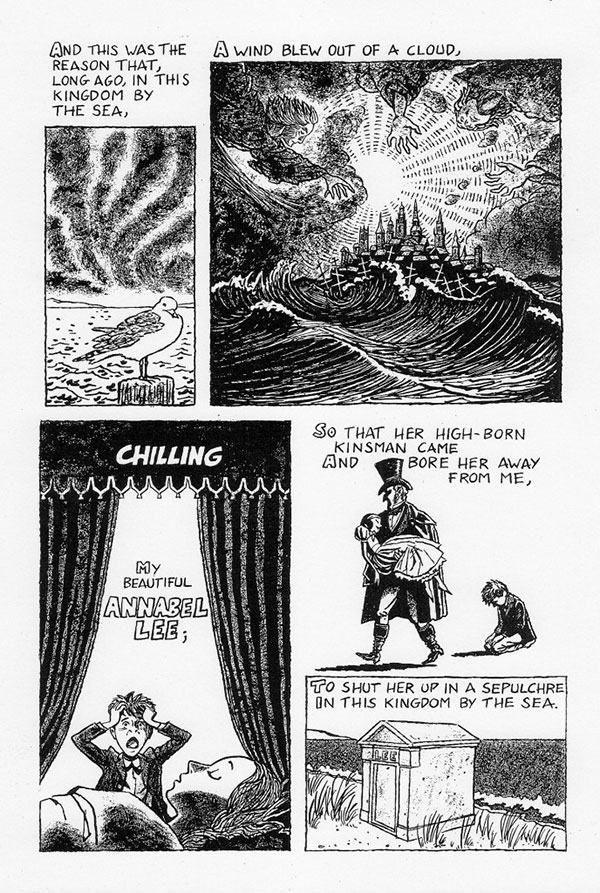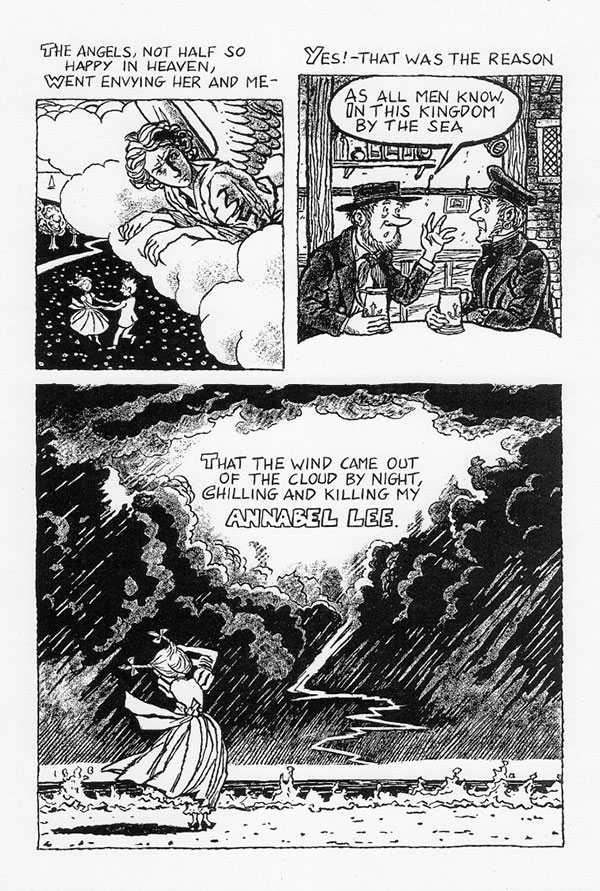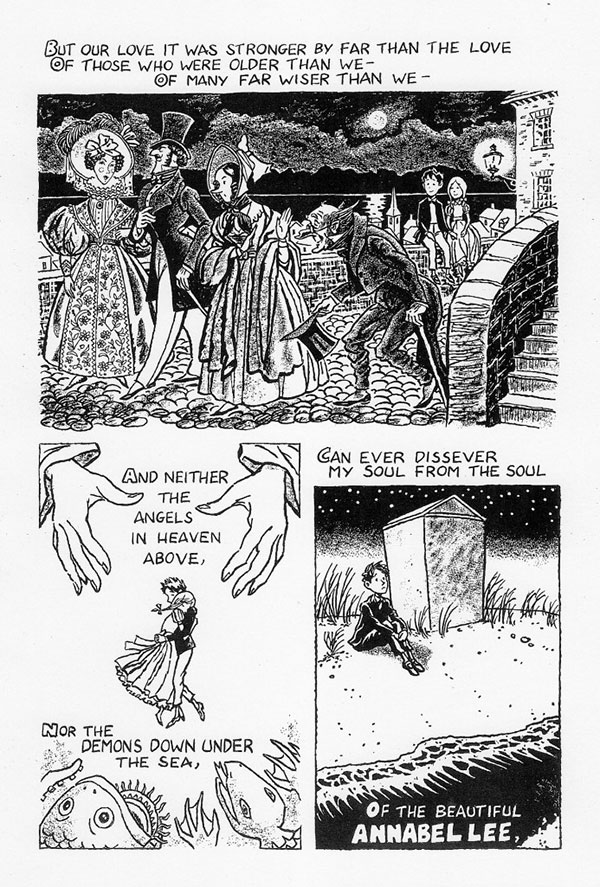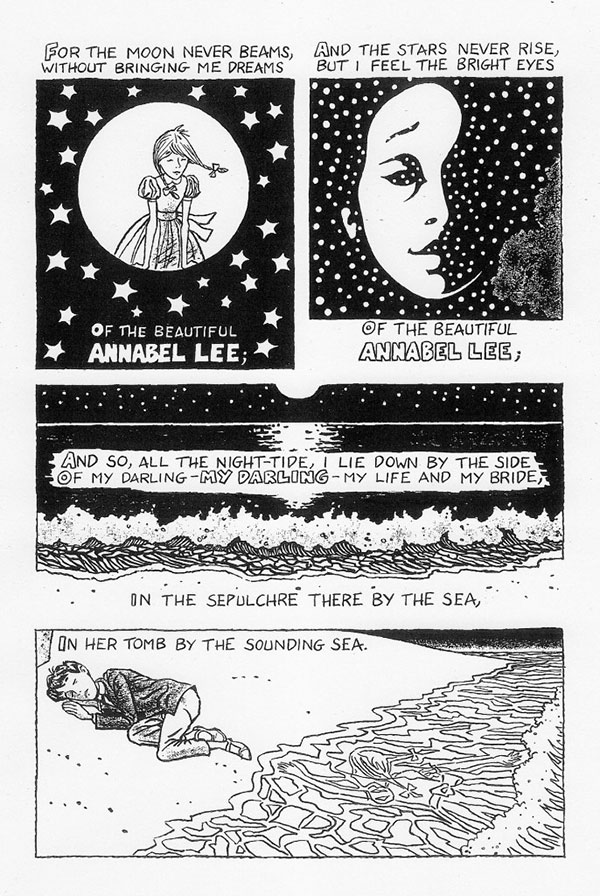 
|
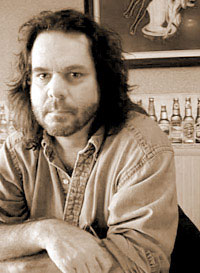
Deadline: March 1
Judge: David Dodd Lee, Series Editor
The 42 Miles Press Poetry Award was created in an effort to bring fresh and original voices to the poetry reading public. The prize is offered annually to any poet writing in English, including poets who have never published a full-length book as well as poets who have published several. New and Selected collections of poems are also welcome.
Manuscripts submitted for the 42 Miles Press Poetry Award should exhibit an awareness of the contemporary "voice" in American poetry, an awareness of our moment in time as poets. We are excited to receive poetry that is experimental as well as work of a more formalist bent, as long as it reflects a complexity and sophistication of thought and language.
Urgency, yes; melodrama, not so much.
The winning poet will receive $1,000, publication of his or her book, and 50 author copies. The winner will also be invited to give a reading at Indiana University South Bend as part of the release of the book. The final selection will be made by the Series Editor. Current or former students or employees of Indiana University South Bend, as well as friends of the Series Editor, are not eligible for the prize.
Winners will be announced via our website in the summer of 2017. We will also announce the winner in major magazines such as Poets & Writers. The winning book will be published in September 2018 and be available to purchase on SPD and Amazon. Previous 42 Miles Press publications include books by Allan Peterson, Betsy Andrews, Bill Rasmovicz, Carrie Oeding, Erica Bernheim, Kimberly Lambright, Nate Pritts, Tracey Knapp, and Christine Garren.
See the complete guidelines and submit by mail or email.
Read "Sonnet No. 44" by Nate Pritts, winner of our 2016 contest.
|
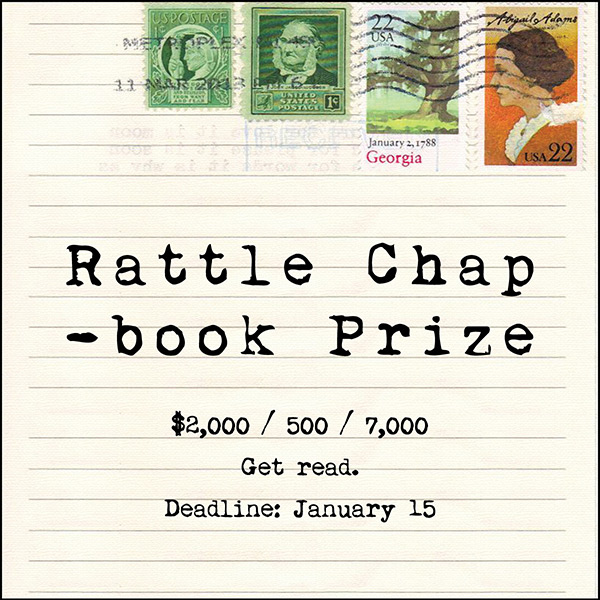
Deadline: January 15. The annual Rattle Chapbook Prize gives poets something truly special. Every year, at least one winner will receive: $2,000 cash, 500 contributor copies, and distribution to Rattle's 7,000+ subscribers. In a world where a successful full-length poetry book might sell 1,000 copies, the winning book will reach an audience seven times as large on its release day alone—an audience that includes many other literary magazines, presses, and well-known poets. This will be a chapbook to launch a career.
And maybe the best part is this: The $20 entry fee is just a standard subscription to Rattle, which includes four issues of the magazine and the winning chapbook, even if it isn't yours. Rattle is one of the most-read literary journals in the world—find out why just by entering! For more information and to read portions of last year's winning entry, 3arabi Song by Zeina Hashem Beck, visit http://www.rattle.com/chapbooks/about/
Please enjoy "Ghazal: Back Home" by Ms. Beck.
|
Prize: $500, publication of a gorgeous chapbook and 50 copies
Deadline: January 31
Reading fee: $20
Submit: 16-24 pages of poetry
Electronic submissions preferred. Submit through https://graysonbooks.submittable.com
Please do not put any contact information on the manuscript; that goes on the separate submission form.
Those preferring to mail their submissions can send them to:
Grayson Books
P.O. Box 270549
West Hartford, CT 06127
Include two cover sheets (one with contact information and one anonymous), SASE for results only, and a check made out to Grayson Books.
Simultaneous submissions are permissible if we are notified immediately upon acceptance elsewhere.
This year's judge, Leslie Ullman, is the author of four poetry collections and numerous reviews and craft essays. Her most recent book is Progress on the Subject of Immensity (University of New Mexico Press).
Please enjoy this poem from last year's winning chapbook, Owling by Jeredith Merrin.
The Maned Owl
(Jubula lettii: classified [2013] as "Data Deficient" by the International Union for Conservation of Nature)
About the maned owl
there is little to tell
because little is known.
It gets its leonine name
from bushy, face-framing
ear tufts. It lives
in Gambon, Cameroon,
Liberia, the Congo
(in what numbers we don't know),
in closed-canopy rainforest.
Its habits are secretive
and nocturnal. Presumably,
given heavy lumbering,
its survival's at risk.
About reproduction and diet,
information is scant.
Its call may be
(we're not sure)
a low, dove-like coo.
As is the case with
the wide coral reefs,
or with each creature's
closed-canopy mind,
or with almost anyone's
mother or father,
too little is known about them.
And then they're gone.
|
|

|
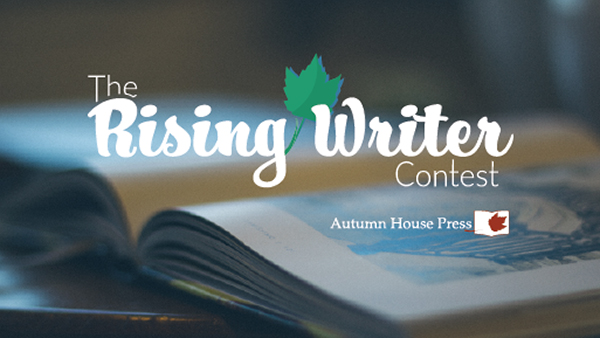
Deadline: January 31
Autumn House Press is accepting submissions for a first full-length book of poetry by an author 33 years old or younger. The press believes in supporting the work of younger, less-established writers who will become the voices of an emerging generation.
The winner will be awarded publication of a full-length manuscript and $1,000 ($500 advance against royalties, and a $500 travel/publicity grant to promote their book). For the 2017 contest, the preliminary judges are members of the Autumn House staff, and the final judge is Ada Limón. The contest deadline for entries is January 31, 2017.
Manuscripts should be between 50-80 pages and all submissions must come through our Submittable account. Full submission guidelines can be found on our website.
|
Deadline EXTENDED: February 6
For the summer 2017 issue, Creative Nonfiction magazine is seeking submissions for a special issue devoted to the theme of "adaptation"—original essays illuminating the ways in which the need to keep up with a rapidly-changing world drives the work of scientists, designers, thinkers, innovators, farmers, soldiers, medical professionals, teachers, and others and affects the lives of prisoners, patients, refugees, students, travelers, and other citizens. As the world changes, so, too, do humans—whether in our approach to building things, developing new technologies (and adapting to the ways those technologies change our society), learning how to eat different kinds of foods, or learning how to dress differently. And of course adaptation is hardly limited to humanity; numerous other species—everything from viruses to plants and animals—have had to adapt to rapid changes
in both global and local habitats.
The special issue of Creative Nonfiction will feature new nonfiction narratives by and/or about professionals whose work helps humans adapt to a changing world. The issue may also feature original work focusing on other, less concrete types of adaptation—for example, how changing demographics affect the development of new technologies; the personal and/or social impacts of shifting attitudes towards gender and sexuality; and the implications and possibilities of new types of media.
We welcome personal stories as well as profiles, and we're open to a very wide range of experiences and circumstances. Above all, we are looking for narratives—true stories, rich with scene, character, detail, and a distinctive voice—that offer unique insight into the theme.
Submissions must be 4,000 words or fewer.
$3,500 for best essay.
Guidelines at creativenonfiction.org/adaptation.
|
|

|

Deadline: February 15 (entry by February 10 is encouraged)
Since 1933, the Ventura County Writers Club
has encouraged the craft of writing. Help us celebrate by entering our 2017 poetry contest. Winners receive cash awards, inclusion in the club's biennial anthology and an invitation to read at our April 2017 poetry awards ceremony. Our contest includes special divisions and reduced fees for youth 13-17 and youth 12 and under. You do not need to be a member of the club or reside in Ventura County to enter. See the complete guidelines.
Please enjoy our first-place winning entry from 2009:
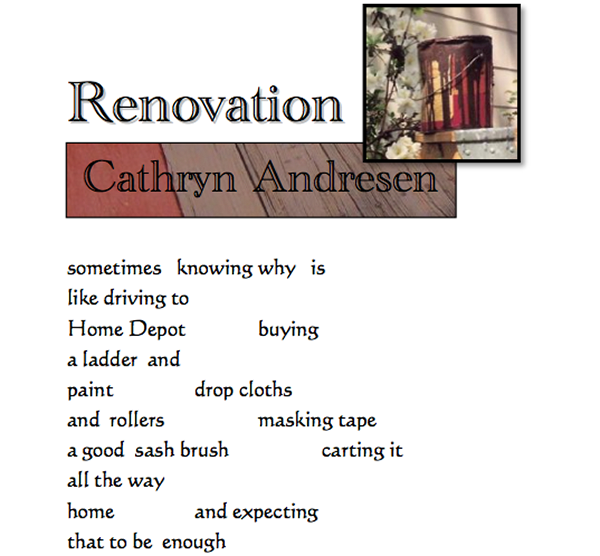
|

|
|
The premise for short story contest #29 is "Space". The word "space" has multiple literal meanings and can work as a noun or a verb, and it has multiple metaphorical meanings as well. There's outer space, inner space, emotional space ("I need my space!"), etc. Your challenge: Write a creative, compelling, well-crafted story between 1,000 and 5,000 words long in which the idea of "space" plays an important role. You may interpret "space" any way you want, as long as your readers can figure out how you're using it. For instance, it's not enough to set a story in an empty warehouse just because empty warehouses have a lot of space—the space has to be an important part of the story.
Deadline: THURSDAY, March 2, 2017, 11:59 PM Eastern Time. This one ends on a THURSDAY, not a Friday!
Winners receive between US$60 and US$220, and publication. There is no fee to enter our contest.
GENRE NOTE: Any genre except children's fiction, exploitative sex, or over-the-top gross-out horror is fine. We will also never accept parodies of another author's specific fictional character(s) or world(s). No exceptions!
Click for details and instructions on submitting your story. To be informed when new contests are launched, subscribe to our free, short, monthly newsletter. On The Premises magazine is recognized in Duotrope, Writer's Market, Ralan.com, and other short story marketing resources.
|
Deadline: March 20
In the summer of 1816, in response to a challenge from friends to write the most terrifying possible ghost story, the young Mary Wollstonecraft Shelley dreamed up the story of a young scientist and his monstrous creation. The "Frankenstein monster" has fascinated the imagination ever since.
In conjunction with the ASU Frankenstein Bicentennial Project, Creative Nonfiction magazine is daring writers (as Mary Shelley was dared in Geneva) to write original and groundbreaking stories in the spirit of Frankenstein—but nonfiction. That is to say, we're looking for true stories that explore humans' efforts to control and redirect nature, the evolving relationships between humanity and science/technology, and contemporary interpretations of monstrosity.
Essays must be vivid and dramatic; they should combine a strong and compelling narrative with an informative or reflective element and reach beyond a strictly personal experience for some universal or deeper meaning. We're open to a broad range of interpretations of the "Frankenstein" theme, with the understanding that all works submitted must tell true stories and be factually accurate. Above all, we're looking for well-written prose, rich with detail and a distinctive voice.
Submissions must be 4,000 words or fewer.
$10,000 for Best Essay and two $2,500 prizes for runners-up.
Guidelines at
creativenonfiction.org/dangerous-creations.
|
|

|
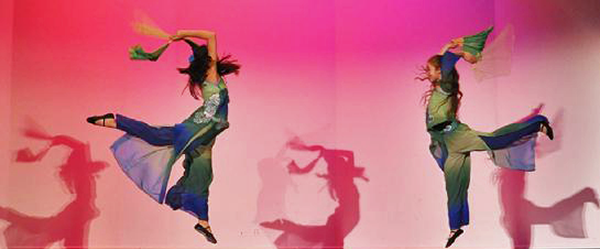
New Deadline: April 15
Now in its 24th year, all Dancing Poetry Festival prize winners will receive a prize certificate suitable for framing, a ticket to the Dancing Poetry Festival, September 16, 2017, in the Florence Gould Theater at the California Palace of the Legion of Honor, San Francisco, and an invitation to read their prizewinning poem at the festival.
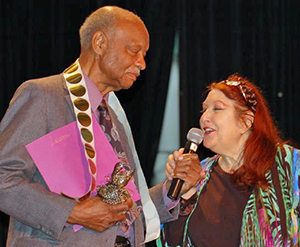 Three Grand Prizes will receive $100 each plus their poems will be danced and filmed. Many smaller prizes. Each Grand Prize winner will be invited onstage for photo ops with the dancers and a bow in the limelight. Three Grand Prizes will receive $100 each plus their poems will be danced and filmed. Many smaller prizes. Each Grand Prize winner will be invited onstage for photo ops with the dancers and a bow in the limelight.
Please look at photos of our Dancing Poetry Festivals to see the vast diversity of poetry and dance we present each year. For poetry, we look for something new and different including new twists to old themes, different looks at common situations, and innovative concepts for dynamic, thought-provoking entertainment. We look forward to reading your submissions. See the complete contest rules.
Please enjoy "The Fountain" by Claire J. Baker, a 2016 Grand Prize winner.
|
Finishing up your manuscript? Putting those last touches on your thesis or dissertation? Submitting application essays to your dream school? These writing projects can take a lot out of a person. Sometimes the work is so dense and the topics so subjective that it's difficult to see a clear end in sight.
Don't pull out more hair—give yourself a break! I'll help ease your typing tension so you can show that writer's block who's boss. Email Lauren Singer at SingerLaur@gmail.com or call 347-675-4877 for professional editing, proofreading, and general assistance with your current project. I have many years of experience, a bundle of great references, and am currently a staff judge at Winning Writers. Let's tackle those big ideas together!
See Lauren's six quick writing tips.
|
|

|
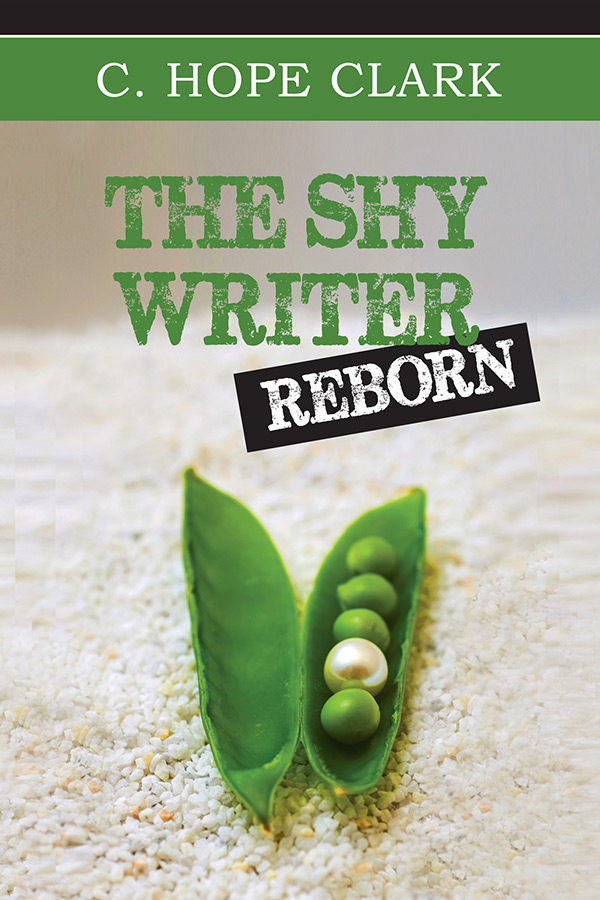
As an introvert and a writer, you feel stretched to choose between the lesser of two evils—marketing to people who'll most likely criticize you, or putting your writing on the back burner. Introverts have strengths that make them marketable, creative, and successful. Forget those people who tell you to change, to put on a different personality, to dance like a monkey before crowds. Here is the support to be a writer and remain who you care to be...genuine.
"Clark's engaging work offers assistance with everything from blogging to self-promotion to holding a successful book signing to finding your authentic voice, all while honoring your deep need for solitude in which to write." – Kelly L. Stone, author of Time to Write: No Excuses, No Distractions, No More Blank Pages
Buy The Shy Writer Reborn now at Amazon.
|
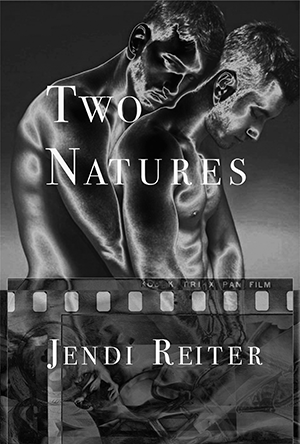
2016 Rainbow Awards: First Prize, Best Gay Contemporary Fiction; First Runner-Up, Debut Gay Book
Named one of QSpirit's Top LGBTQ Christian Books of 2016
Jendi Reiter's debut novel, Two Natures (Saddle Road Press), is available from Amazon and Barnes & Noble. This genre-bending work couples the ambitious political analysis of literary fiction with the pleasures of an unconventional love story.
From a 5-star review on Amazon:
"Two Natures is extremely well written. Reiter is a poet so it makes sense that the prose is powerful and profound. This book exceeded my expectations and is such a necessary piece of work while so many deal with religion and sexuality. I highly recommend this book—and I am going to buy it for my children."
Read an excerpt.
Listen to Julian's Playlist on Pinterest.
|
|
Some contests are best suited to writers at the early stages of their careers. Others are better for writers with numerous prizes and publications to their credit. Here is this month's selection of Spotlight Contests for your consideration:
Emerging Writers
Janet Heidinger Kafka Prize. Prize of $7,500 for a book of fiction by a US woman, published in the preceding calendar year. Entries may be a novel, a collection of short stories, or experimental writing. Four copies must be submitted by publisher. Due February 1.
Intermediate Writers
Orwell Prize. Prizes of 3,000 pounds in two categories (Book Prize and Journalism Prize) for the best political writing published during the preceding calendar year. In addition, a Special Prize may be awarded at the judges' discretion. Entries may be published books of fiction or nonfiction, journalistic articles, broadcasts, or blogs. All entrants must have a clear relationship with the UK or Ireland. Due January 17.
Advanced Writers
Milton Kessler Poetry Book Award. Binghamton University will award $1,000 for the best book of poetry published by a US resident in the previous calendar year. No translations. Publishers or authors should send 2 copies of published book plus entry form. Publisher may submit more than one title for prize consideration. Due February 1.
See more Spotlight Contests for emerging, intermediate, and advanced writers within The Best Free Literary Contests database.
|
|

|
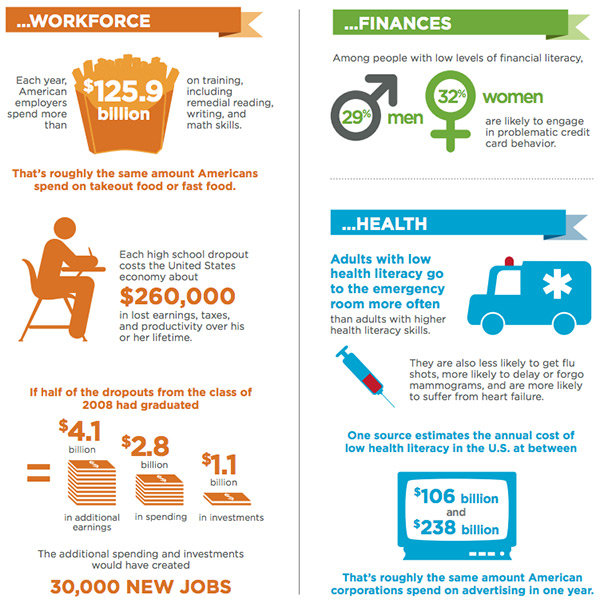
ProLiteracy, the largest adult literacy and basic education membership organization in the nation, believes that a safer, stronger, and more sustainable society starts with an educated population. For more than 60 years, ProLiteracy has been working across the globe to create a world where every person can read and write. Learn more.
|
Advertisers: We send this newsletter to over 50,000 subscribers. Ads are just $150 each. On a tight budget? Pressed for time? Advertise to our 81,000 Twitter followers for just $40 per tweet or less.

Solo mailings and website advertising are available. Inquire with Adam Cohen at adam@winningwriters.com.
"We were very pleased with the results of our solo blast with Winning Writers. It generated a significant volume of leads for us at a competitive cost."
-Tom Laverty, Business Development Manager, BookBaby
|
The Usual Obsessions
Last year I began intermittently journaling about instances of gender dysphoria or role-switching fantasies in my youth, in hopes of finding some "always already nonbinary" evidence that would validate my sense of unease with my embodiment. I quickly became dissatisfied with this project because there's no way to disentangle the strands of societal sexism, familial abuse, and genuine queerness that made me what I am. More to the point, no after-the-fact explanation or identity label can give me back the years I lost being alienated from my full gender expression, nor open up possibilities that were permanently foreclosed by my childhood development. [read more]
Jendi Reiter is the editor of Winning Writers. Follow her on Twitter at @JendiReiter.
|
|

|
|


|
|
|
